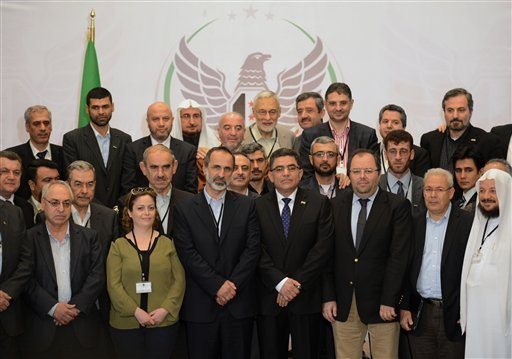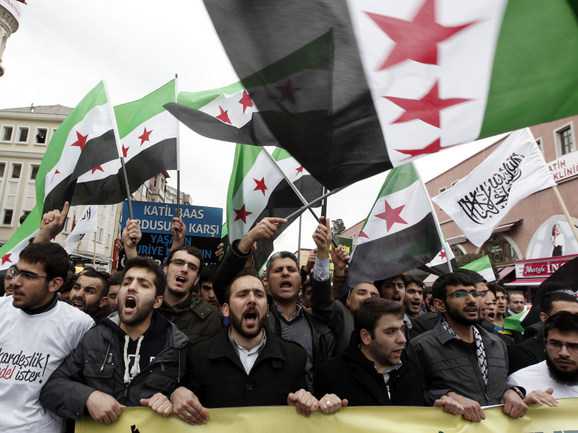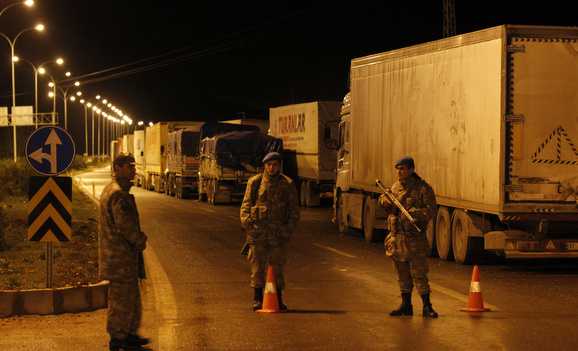ISTANBUL – Anatolia News Agency
Istanbul’s CRR hosted on March 25 a concert to benefit Syria. The Istanbul Symphony Orchestra played under the baton of Bosnian Emir Nuhanovic

Syrian violinist Ali Moraly made an appearance as a soloist. AA photo
The Istanbul Symphony Orchestra performed March 25 under the baton of famous Bosnian orchestra conductor Emir Nuhanovic. The concert at Istanbul’s Cemal Reşit Rey Concert Hall (CRR) was organized to draw attention to the human tragedy in Syria and hosted Syrian violinist Ali Moraly as a soloist.
Culture and Tourism Minister Ömer Çelik, who made a speech before the concert, said that while optimism was in the air all around the world in the 1990s, the people of Sarajevo faced a wild massacre. He said he had been a student at the time.
“We students were organized to find out what we could do for Sarajevo. Although Turkey mobilized its all options, we did not have today’s opportunities and all of us felt the pain and sorrow of our helplessness for Sarajevo. In the middle of the tragedy, the late Alija Izetbegovic called for the master conductor Nuhanovic and asked him to make their voice be heard all around the world. The modern world, which had nothing to say for Sarajevo, began to speak again.”
Tragedy before the whole world
Çelik said Syria was currently experiencing a tragedy before the whole world and the concert was held to draw attention to this drama. “There are 70,000 martyrs and 250,000 missing. There are millions of refugees outside the country, and there are millions of people who had to leave their place in Syria. Now, in order to make a call for all human beings, art will make its voice heard for Syria under the leadership of a great master. What should be asked here is how those who remain silent against the events in Syria could do it. We will give the most meaningful answer to this tonight in this venue,” he said.
The minister said the question of what art is would find the most meaningful answer that night as well.
“Rather than watching the tragedy in Bosnia in the 1990s, Turkey did its best. It is trying to do the same for Syria today. But there is a difference today, and everybody feels what this difference is. Today we are all around the world not only with our people but also with all organs of the state. We do not stand by those who slaughter and oppress. We are not following a policy of lack of conscience.”
Çelik said it was not an ordinary night but rather the 70,000 martyrs and hundreds of thousands of missing were together with them.
“We will be the tongue of millions of refugees tonight. This is art. The losses of Bosnia will meet the losses of Syria, and Istanbul will bring brotherhood to Aleppo, Damascus and Sarajevo once again.”
‘Mothers bury their own children in Syria’
At the opening of the concert, Nuhanovic addressed the audience, saying Europe and most of the world did nothing for the incidents in Sarajevo and only Turkey had made efforts against this tragedy at the United Nations.
He said that to draw attention to the events, they gave a concert with conductor Zubin Mehta in 1994 under hard circumstances upon the order of Izetbegovic. “The tear of a child is worth the wealth of the world. Mothers bury their own children now in Syria.”
Following the speeches Tomaso Albinoni’s Adagio in G-Minor, Maurice Jarre’s “The Message” and Beethoven’s 5th Symphony were performed at the concert.
March/27/2013
via MUSIC – Istanbul Symphony Orchestra plays to draw attention to Syria.





